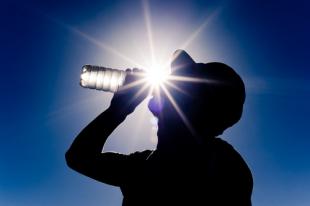Double and triple digit temperatures, with or without humidity, cause all sorts of problems for humans and pets. Roofing, highway construction and agricultural are just a few industry examples across the northwest where outdoor workers are vulnerable to heat-related illnesses. Heat illness can affect anyone, not just those who work in logging, construction, landscaping, agriculture, field work, or transportation.
Environmental factors also contribute to heat stress, such as direct sun, heat and humidity, limited air movement (low or no wind), hot equipment, reflected heat from the ground or objects, physical exertion, workload activity, clothing or personal protective equipment.
Hot weather can cause mental and physical fatigue. Outdoor workers should take extra care when working or driving. Heat-related illnesses are preventable and happen when the body cannot cool itself.This can cause injury, disability or death. Washington’s Department of Labor and Industries offers these tips to help thwart heat stress:
-
Start work well hydrated and drink as much as a cup of water every 15 minutes.
-
Watch co-workers for signs of heat-related illness, including headaches, dizziness or nausea.
-
Pace your work and take scheduled breaks in the shade.
-
Wear lightweight clothing and remove protective gear when it’s safe to do so.
-
Avoid drinking caffeine or eating a heavy meal.
Related courses:






